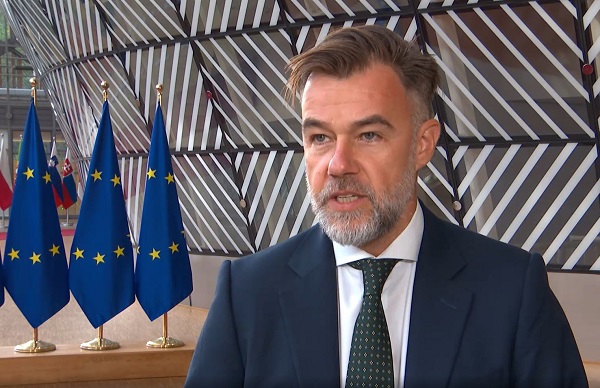 Franz Fayot, Luxembourg's Minister of the Economy;
Credit: Council of the European Union
Franz Fayot, Luxembourg's Minister of the Economy;
Credit: Council of the European Union
On Monday 25 September 2023, Luxembourg's Minister of the Economy, Franz Fayot, travelled to Brussels in Belgium to participate in the EU Competitiveness Council.
During this meeting, ministers were called upon to ratify, among other things, a Council agreement on the proposed regulation for new automobile emissions standards for vehicles in Europe (Euro 7).
Directly linked to the objectives of the European Green Deal, aiming to make Europe the first climate-neutral continent by 2050, the Euro 7 Regulation has the dual objective of improving not only the environmental impact of the transport sector, but also to reduce the harmful effects of polluting emissions on the health of citizens.
As proposed by the European Commission, the text of this new European regulation not only targeted exhaust emissions, but also introduced thresholds for particle emissions from brakes and tyres. However, during negotiations in the Council of the European Union, a majority of Member States wanted to return to the initial requirements of the previous Euro 6 standard.
"Between competitiveness for the automotive sector, the environment and the health of our citizens, particularly children, our choice will always go towards health," stated Minister Fayot. He recalled that cars with combustible vehicles put on sale in 2035 will still pollute our atmosphere for decades and that it is essential to be more ambitious in terms of standards. As such, Luxembourg did not support the compromise presented by the Spanish Presidency of the Council, which was nevertheless adopted with a majority of Member States in favour. Negotiations will now continue with the European Parliament with a view to finding a final agreement before the European elections in June 2024.
Ministers also had an exchange of views with Enrico Letta, President of the Jacques Delors Institut and former Italian Prime Minister, who was tasked by the Heads of State and Government with drafting a high-level report on the future of the internal market.
"As we celebrate the 30th anniversary of the internal market, I would like to emphasise that we need more Europe, not less Europe, to jointly succeed in the challenges of the green and ecological transition of our economy, faced with a complex geopolitical situation," insisted Minister Fayot. He recalled that Luxembourg is particularly dependent on the internal market: more than 60% of Luxembourg consumers make cross-border purchases online, compared to the European average of 27%, while 78% of Luxembourg companies use suppliers established in another Member State.
Luxembourg's Economy Minister deemed the abolition of the fragmentation of rules as essential to create a common area of freedom, specifying that the internal market "makes it possible to reconcile the three pillars for sustainable development: the economic, the social and the environmental [pillars]." He also insisted on the need to refocus on the foundations of European construction.
Moreover, Minister Fayot advocated a firm role for the European Commission, which should use all its prerogatives as guardian of the treaties to ensure the proper application of existing rules, which he felt were often neglected by member countries.
On the sidelines of the Competitiveness Council, Minister Fayot spoke informally with his Belgian and Dutch counterparts, Pierre-Yves Dermagne and Micky Adriaansens, about the internal market.








